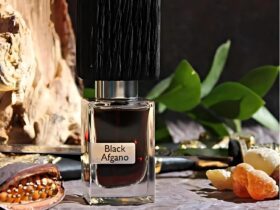A signature scent is more than just a fragrance—it is an extension of your personality, a silent yet powerful statement about who you are. Selecting the right perfume can be an overwhelming task, given the vast variety of options available. However, with a structured approach and careful consideration, you can find a scent that perfectly complements your style and leaves a lasting impression. In this guide, we will walk you through the essential steps to choosing the perfect signature fragrance.
Understanding Fragrance Families
Before selecting a signature scent, it is crucial to understand the different fragrance families. Perfumes are categorized into various groups based on their dominant scent characteristics:
Floral
One of the most popular fragrance families, floral scents are feminine, romantic, and delicate. These fragrances often feature notes of rose, jasmine, peony, or lily.
Citrus
Fresh, zesty, and invigorating, citrus fragrances contain notes of lemon, orange, grapefruit, and bergamot. They are perfect for those who enjoy refreshing and energetic scents.
Woody
Warm and earthy, woody perfumes often include notes like sandalwood, cedarwood, and vetiver. These scents are ideal for those who prefer deep, rich, and sophisticated aromas.
Oriental
Sensual and exotic, oriental fragrances feature notes such as vanilla, amber, musk, and spices. They are bold, long-lasting, and perfect for evening wear.
Fresh/Aquatic
Light, airy, and clean, fresh fragrances often incorporate elements like sea breeze, green tea, cucumber, and mint. These scents are ideal for those who enjoy subtle and revitalizing perfumes.
Identifying Your Personal Style and Preferences
Your signature scent should reflect your personality and lifestyle. Ask yourself the following questions to narrow down your choices:
- Do you prefer light, fresh scents or bold, intense aromas?
- Are you looking for a fragrance suitable for everyday wear or special occasions?
- Do you enjoy floral, fruity, spicy, or musky undertones?
- How does a fragrance make you feel—confident, relaxed, elegant, or energetic?
Testing and Selecting the Right Perfume
Once you have a general idea of your preferred fragrance family, it’s time to test different perfumes. Here’s how you can do it effectively:
1. Use Test Strips First
When visiting a perfume store, start by spraying different fragrances on blotter strips. This will give you a sense of how each perfume smells without overwhelming your senses.
2. Apply on Your Skin
A perfume reacts differently based on your skin’s chemistry. Once you have shortlisted a few options, apply them to pulse points such as the wrist and inner elbow.
3. Wait for the Dry Down
Fragrances evolve over time. The initial scent (top notes) fades within 15-30 minutes, revealing the heart (middle notes) and finally the base notes, which can last for hours. Always wait at least an hour before making a final decision.
4. Avoid Testing Too Many at Once
Your nose can only process a few scents at a time before becoming desensitized. Limit yourself to 3-4 perfumes per visit.
5. Take a Break Between Sniffs
Sniffing coffee beans between fragrance tests can help reset your olfactory senses and provide a clearer perception of each scent.
Choosing the Right Perfume Concentration
Perfumes come in different concentrations, affecting their longevity and intensity:
- Eau de Cologne (EDC) – Lightest concentration, lasts 2-3 hours.
- Eau de Toilette (EDT) – Moderate concentration, lasts 3-6 hours.
- Eau de Parfum (EDP) – Higher concentration, lasts 6-8 hours.
- Parfum (Perfume Extract) – Most concentrated, lasts 8+ hours.
If you prefer a long-lasting scent, go for Eau de Parfum or Perfume Extract.
Considering Season and Occasion
Your signature scent should be versatile enough for different seasons and occasions:
- Spring/Summer: Light, floral, citrus, and fresh aquatic scents are ideal.
- Fall/Winter: Warm, spicy, woody, and oriental fragrances work best.
- Daytime: Subtle and fresh perfumes are great for work and casual outings.
- Evening: Richer, more intense scents add a touch of sophistication and allure.
Taking Care of Your Perfume
Proper storage ensures that your perfume maintains its quality and longevity:
- Store in a cool, dark place away from direct sunlight.
- Keep the bottle tightly closed to prevent evaporation.
- Avoid keeping perfumes in humid areas like the bathroom.
Final Thoughts: Finding Your Signature Scent
Choosing a signature scent is a deeply personal journey. Take your time exploring different options, testing them on your skin, and observing how they evolve. A well-chosen fragrance enhances your presence, boosts confidence, and creates an unforgettable impression.
By following these steps, you can find the perfect perfume that truly defines your personality and style.
A signature scent is more than just a fragrance—it is an extension of your personality, a silent yet powerful statement about who you are. Selecting the right perfume can be an overwhelming task, given the vast variety of options available. However, with a structured approach and careful consideration, you can find a scent that perfectly complements your style and leaves a lasting impression. In this guide, we will walk you through the essential steps to choosing the perfect signature fragrance.
Understanding Fragrance Families
Before selecting a signature scent, it is crucial to understand the different fragrance families. Perfumes are categorized into various groups based on their dominant scent characteristics:
Floral
One of the most popular fragrance families, floral scents are feminine, romantic, and delicate. These fragrances often feature notes of rose, jasmine, peony, or lily.
Citrus
Fresh, zesty, and invigorating, citrus fragrances contain notes of lemon, orange, grapefruit, and bergamot. They are perfect for those who enjoy refreshing and energetic scents.
Woody
Warm and earthy, woody perfumes often include notes like sandalwood, cedarwood, and vetiver. These scents are ideal for those who prefer deep, rich, and sophisticated aromas.
Oriental
Sensual and exotic, oriental fragrances feature notes such as vanilla, amber, musk, and spices. They are bold, long-lasting, and perfect for evening wear.
Fresh/Aquatic
Light, airy, and clean, fresh fragrances often incorporate elements like sea breeze, green tea, cucumber, and mint. These scents are ideal for those who enjoy subtle and revitalizing perfumes.
Identifying Your Personal Style and Preferences
Your signature scent should reflect your personality and lifestyle. Ask yourself the following questions to narrow down your choices:
- Do you prefer light, fresh scents or bold, intense aromas?
- Are you looking for a fragrance suitable for everyday wear or special occasions?
- Do you enjoy floral, fruity, spicy, or musky undertones?
- How does a fragrance make you feel—confident, relaxed, elegant, or energetic?
Testing and Selecting the Right Perfume
Once you have a general idea of your preferred fragrance family, it’s time to test different perfumes. Here’s how you can do it effectively:
1. Use Test Strips First
When visiting a perfume store, start by spraying different fragrances on blotter strips. This will give you a sense of how each perfume smells without overwhelming your senses.
2. Apply on Your Skin
A perfume reacts differently based on your skin’s chemistry. Once you have shortlisted a few options, apply them to pulse points such as the wrist and inner elbow.
3. Wait for the Dry Down
Fragrances evolve over time. The initial scent (top notes) fades within 15-30 minutes, revealing the heart (middle notes) and finally the base notes, which can last for hours. Always wait at least an hour before making a final decision.
4. Avoid Testing Too Many at Once
Your nose can only process a few scents at a time before becoming desensitized. Limit yourself to 3-4 perfumes per visit.
5. Take a Break Between Sniffs
Sniffing coffee beans between fragrance tests can help reset your olfactory senses and provide a clearer perception of each scent.
Choosing the Right Perfume Concentration
Perfumes come in different concentrations, affecting their longevity and intensity:
- Eau de Cologne (EDC) – Lightest concentration, lasts 2-3 hours.
- Eau de Toilette (EDT) – Moderate concentration, lasts 3-6 hours.
- Eau de Parfum (EDP) – Higher concentration, lasts 6-8 hours.
- Parfum (Perfume Extract) – Most concentrated, lasts 8+ hours.
If you prefer a long-lasting scent, go for Eau de Parfum or Perfume Extract.
Considering Season and Occasion
Your signature scent should be versatile enough for different seasons and occasions:
- Spring/Summer: Light, floral, citrus, and fresh aquatic scents are ideal.
- Fall/Winter: Warm, spicy, woody, and oriental fragrances work best.
- Daytime: Subtle and fresh perfumes are great for work and casual outings.
- Evening: Richer, more intense scents add a touch of sophistication and allure.
Taking Care of Your Perfume
Proper storage ensures that your perfume maintains its quality and longevity:
- Store in a cool, dark place away from direct sunlight.
- Keep the bottle tightly closed to prevent evaporation.
- Avoid keeping perfumes in humid areas like the bathroom.
Choosing a signature scent is a deeply personal journey. Take your time exploring different options, testing them on your skin, and observing how they evolve. A well-chosen fragrance enhances your presence, boosts confidence, and creates an unforgettable impression.
By following these steps, you can find the perfect perfume that truly defines your personality and style.









Leave a Reply